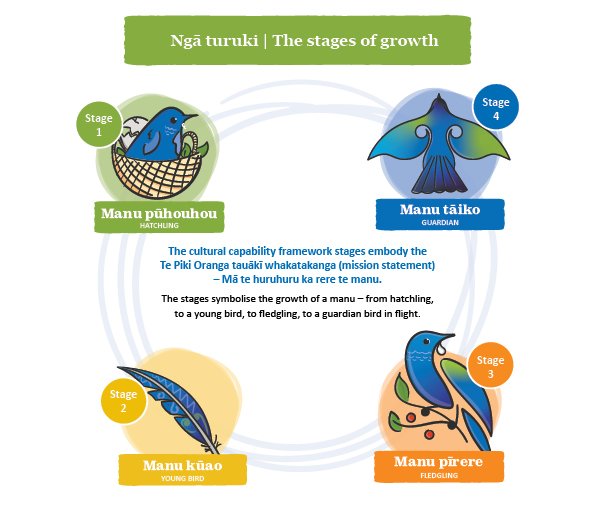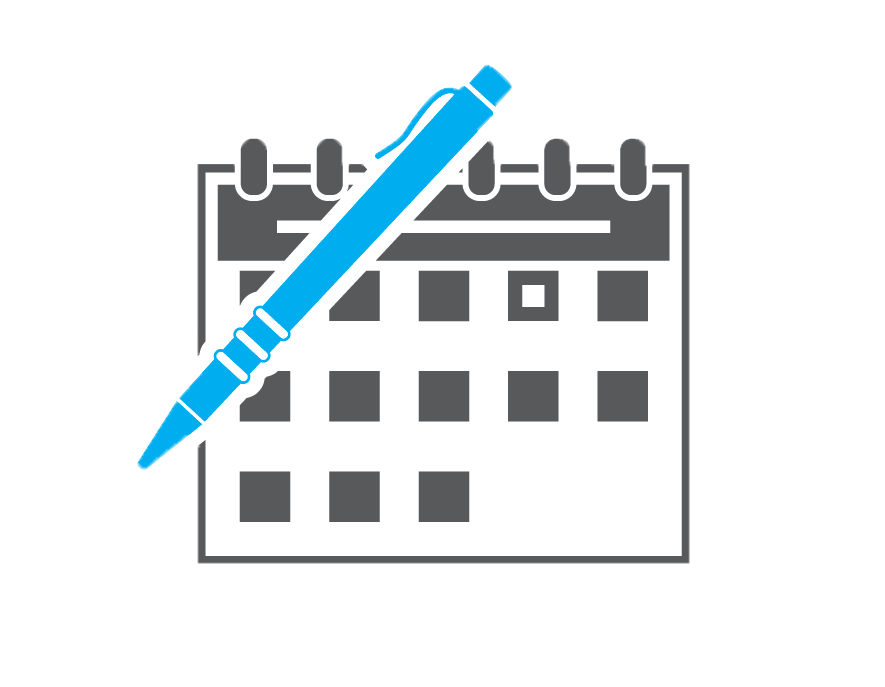Now in its second year, our Tuku Te Rere programme, established by Te Pou Taki Carl Baker, has put kaimahi firmly on a journey towards greater cultural capability.
Our kitenga is to have culturally capable kaimahi providing an exemplary Māori wellness service. Through Tuku Te Rere, kaimahi progress through four phases of learning that are shaped around the concept of a manu, or bird.
Pitopito kōrero, by Carl Baker
Ko tō tātau anga āheitanga ahurea, our cultural capability framework, is thriving.
In resonance with our taukī whakatakanga (mission statement), ‘mā te huruhuru ka rere te manu’, we are equipping ourselves with the mātauranga to provide a hauora service aligned to tikanga Māori.
All kaimahi have an ‘onboarding’ pass for their flight plan on the continuum of learning and I am pleased with the journey so far. For the year ahead, we will continue to focus on the majority of kaimahi at Manu Pūhouhou and Manu Kūao stages.
We have met our target, with 30 per cent of kaimahi reaching these taumata. Fifty per cent of kaimahi have undertaken Te Ataarangi training and almost 70 per cent attended our tikanga wānanga, which included Te Tiriti o Waitangi training.
Mahi a Atua training and learning is continuing to be a highlight for kaimahi. This year we hope to see the rest of kaimahi undertake Mahi a Atua courses.
Kaimahi perspectives of their learning journey
Summer Stronach
Pitopito kōrero, by Summer Stronach
I found the resources provided on SharePoint very helpful. It was handy to have the correct kupu and info available to me so I didn’t have to second guess anything I searched on the internet.
Any other awhi I got from kaimahi always felt safe for me and I wasn’t too scared to ask for help when needed.
The process of sitting my assessment felt very informal – in the best way. Lots of us freak out and think it’s going to be a test in strict circumstances and that no mistakes are allowed. It was a really nice way to kōrero and ‘be tested’ at the same time.
Rachelle Tauroa
Pitopito kōrero, by Rachelle Tauroa
I was a bit whakamā to sit my Manu Pūhouhou assessment. My nerves made me feel I couldn’t do it.
Carl was probably key to me taking that first step as when he said, ‘You are sitting your Manu Pūhouhou’, I thought, ‘I am ok’. While those nerves were still there, Carl made the process feel easy.
That push helped me to make a commitment that by the end of 2023 I would sit my Manu Kūao assessment, which I did and received my badge. Now I am on my journey to sit my Manu Pīrere.
Along with Te Ataarangi, the resources are very helpful in helping me to start that kōrero journey of putting sentences together. I am now trying to kōrero te reo Māori when I can, and with who I can.
I feel Tuku Te Rere has really helped me feel more confident in my reo journey and being ok about making hapa (mistakes).
Pitopito kōrero, by Georgie (Georgina) Taukamo
I found the assessment included awesome, important fundamentals for my te reo journey, covering a lot of the basic formal / informal greetings that I did not know.
Another fundamental for me is the expansion / revival of my prior knowledge around our health models that underpin our values and practice. Being able to implement this into my mahi helped me with my work. It was highly valuable to revisit this and have Carl kōrero about hauora Māori health models more in depth.
I found that attending Ataarangi weekly with fellow kaimahi helped with confidence. Being able to kōrero and practice in the tari helped further my understanding of sentence structures and pronunciation of kupu.
I also found that by completing the assessment in a formal Word document prior and working through each task scheduled through my week helped my understanding. So when I was ready to sit my assessment I felt confident, because I had taken the time to really study it in depth at my own pace and, importantly, I understood it.
I really appreciated the links to learning resources. I also took the opportunity to ask Ataarangi kaimahi questions I had at the time, which was really helpful.
I think overall it was the awhi from fellow kaimahi that further encouraged me to complete the assessment. Mentors like Amber were helpful for other pātai. And just having a relaxed environment while completing the assessment with Carl really helped with my nerves.
It was also important to share my experience with other kaimahi who also attended Ataarangi – to encourage them to complete the cultural assessment, too. In my opinion, it all comes down to our peers – supporting each other to give us the confidence we lack within ourselves.
Once I completed Manu Kūao, I made a personal commitment to prioritise the time for me to learn and further my knowledge in Te Ao Māori. Also to encourage and annoy my peers to make the leap too!





